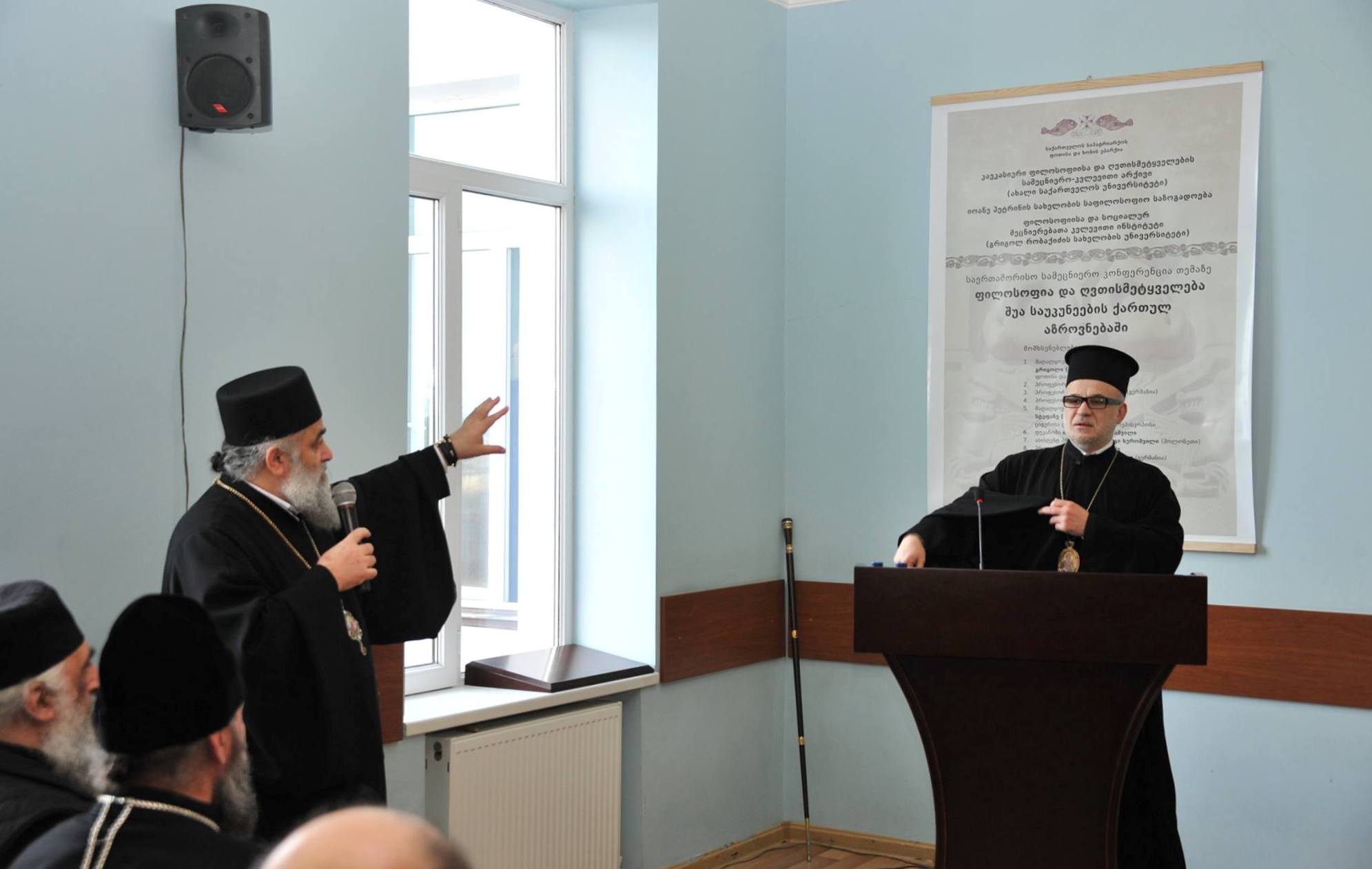News

International Conference "Philosophy and Theology in Medieval Georgian Thought"
On November 28-29, 2014, New Georgian University hosted an international conference Philosophy and Theology in Medieval Georgian Thought. The conference was organized by the Archive of Caucasian Philosophy and Theology, Ioane Petritsi Philosophical Society, and the Institute of Philosophy and Social Sciences.
Program of the conference:
Opening speech - His Eminence Metropolitan of Poti and Khobi Girgol.
Prof. Dr. Tengiz Iremadze (Director of the Archive of Caucasian Philosophy and Theology) - Philosophy and Theology in Medieval Georgian Thought (Anonymous author, Ephrem Mtsire, Ioane Petritsi)
Prof. Dr. Magda Mchedlidze (Ivane Javakhishvili Tbilisi State University) - Ioane Petritsi and Nicholas of Methone on Proclus` Philosophy (Two Contradictory Approaches to Proclus' Philosophy in 12th Century Eastern Christian Thought)
Prof. Dr. Udo Reinhold Jeck (Ruhr-Universität Bochum) - Friedrich Creuzer findet Joane Petrizi. Geschichte einer Entdeckung
Archpriest Aleksi Kshutashvili (Tbilisi Theological Academy & Seminary) - Humanistic Ideas in Old Georgian Canon Law
Prof. Dr. Mikheil Gogatishvili (Grigol Robakidze University) - The Ideological-Political Paradigms of Georgian Statehood in Medieval Age
Prof. Dr. Helmut Schneider (University of Kassel) - Who was Dionysius the Areopagite?
Prof. Dr. Lali Zakaradze (Batumi Shota Rustaveli State University) - Mystical Theology of Dionysius the Areopagite and Medieval Georgian Thought
His Eminence Archbishop of Tsageri and Lentekhi Stephane - Maximus the Confessor and Georgia
Archpriest Teimuraz Tatarashvili (Tbilisi Theological Academy & Seminary) - John of Damascus in Georgian Philosophical and Theological Tradition
Giorgi Khuroshvili (Adam Mickiewicz University) - Conceptions of Political Thought in Medieval Georgia (Arsen of Ikalto and David the Builder)
Plenary speech - His Eminence Archbishop of Dmanisi and Agarak-Tashiri, Great Britain and Ireland Zenon:
Islam in the Context of Contemporary Challenges

